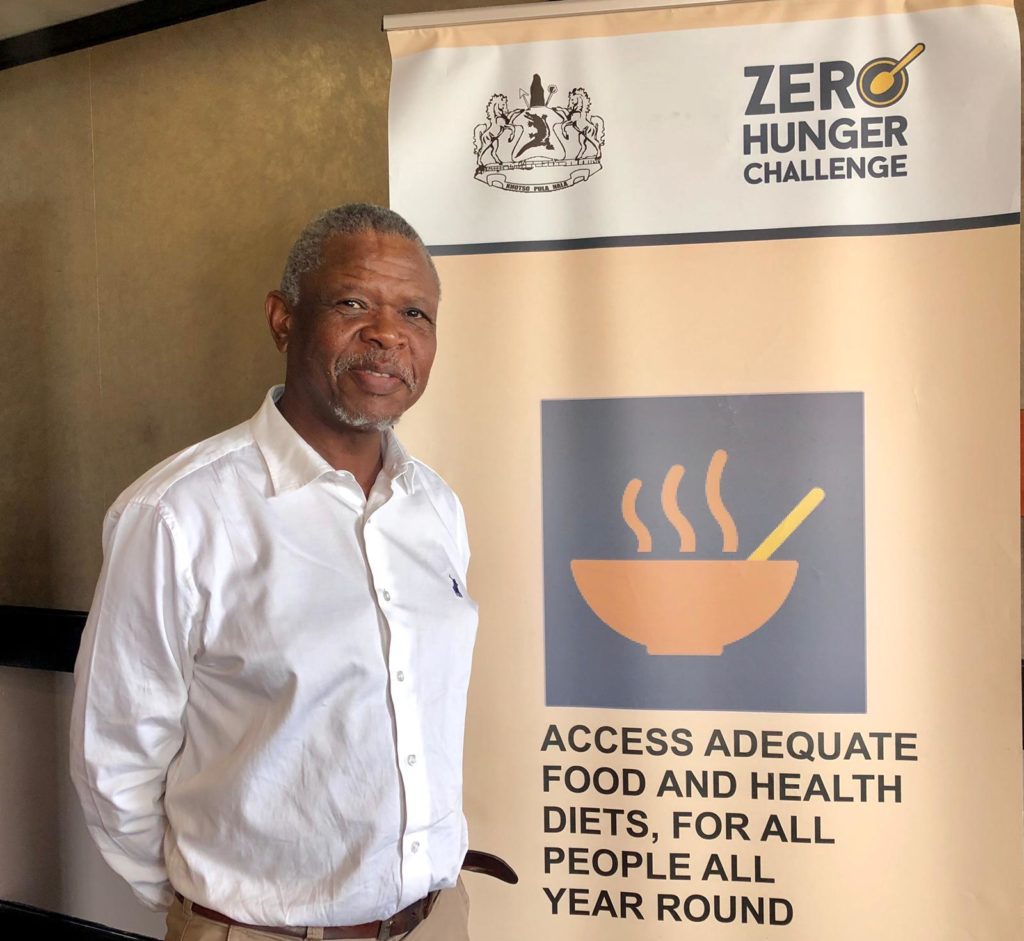“There is a strong interest to set up a functional Multi-Sectoral Platform in Lesotho to fight against malnutrition”
Interview of Mr Tiisetso Elias SUN Focal Point in Lesotho Can you tell us a bit about the nutrition situation in Lesotho? What are the key underlying causes? Tiisetso Elias: Lesotho is facing a problem of malnutrition that is often referred to as ‘triple burden’…
Interview of Mr Tiisetso Elias
SUN Focal Point in Lesotho
Can you tell us a bit about the nutrition situation in Lesotho? What are the key underlying causes?
Tiisetso Elias: Lesotho is facing a problem of malnutrition that is often referred to as ‘triple burden’ of malnutrition. The most important nutrition problem is stunting, but we do see an increase in the incidence of overweight, and we also have a relatively high rate of acute malnutrition.
With regards to the underlying causes, food insecurity is the main cause of malnutrition here in Lesotho. Food insecurity is driven by environmental factors, climate change with long and severe droughts, old and inefficient agricultural practices coupled with yearly lean seasons. We are working to change our approached to agricultural production and make it more ‘climate smart’, especially to alleviate shortages we see during seasons.
What is the structure of the SUN Movement in Lesotho? How does it help coordinating the different stakeholders in the country?
Tiisetso Elias: Here in Lesotho we are proud to have Government structures that were in place even before we joined the SUN Movement. We have always had a very diverse and multi-level structure, similar to the structure recommended by the SUN Movement approach. The challenges we have is to ensure they are functional on the ground: historically, nutrition has never received a high share of the government budget, and there is a duplication of efforts among different Ministries.
Today, we have a SUN Focal Point endorsed by the Government, and the involvement of the FNCO (Food and Nutrition Coordination Office) is strong. We also have a UN/donor network chaired by UNICEF.
Has there been any change or progress in nutrition coordination in Lesotho since the country joined the SUN Movement? Can you share some specific examples?
Tiisetso Elias: We have made some attempts to set up the different SUN networks and the Multi-sectoral Platform, but lack of funding has affected our progress. Nonetheless, there is a strong interest from civil society, private sector and academia and we will make sure that the networks are formed in 2019.
What do you think are the key challenges in putting nutrition high on the agenda of the country?
Tiisetso Elias: One of the challenges is how to address the increase of the two types of malnutrition (acute and overweight) that we have seen recently. Our research evidence is not reliable, because it is out of date. In Lesotho, research initiatives on malnutrition have not been consistent over the years, and we rely on results from the DHS (Demographic and Heath Survey) that is conducted only every 5 years. We have tried to raise funds to conduct survey (the last nutrition survey was carried out over 10 years ago), but we have not had much luck so far. Nonetheless, we have seen some successes in addressing malnutrition particularly stunting: according to the last DHS (2014) stunting is just above 32% and decreased from 36% 9DHS, 2009). Another challenge is that we cannot confidently identify best practices in fighting malnutrition, due to lack of evidence-based research. As a result, we are not able to encourage the scaling up of specific and proven-to-be effective interventions.
Finally, priorities change according to different Government administration, and this affects interest towards fighting malnutrition. Here in Lesotho we have a small donor community (compared to other countries in the region), with little funding for nutrition. We need more research, and I am happy that WFP conducted the ‘Cost of Hunger’ study: it was an eye-opener for decision-makers in the country to realize the importance of nutrition, and the consequences of malnutrition on the economy.
What are your priorities for 2019?
Tiisetso Elias: We have identified several priorities for 2019. We want to set up the networks, have a functional Multi-Stakeholder Platform, develop a Common Results Framework and strengthen the role of the FNCO to coordinate with other Ministries, particularly on monitoring and reporting of sensitive and specific nutrition interventions.
Can you share some lessons learned in your role as nutrition and focal point coordinator?
Tiisetso Elias: I have personally noticed a much stronger interest from different stakeholders in fighting nutrition, and more awareness of the role they can play in the sector. We also need a new approach to nutrition, a change of mindset from treatment to prevention.
At FNCO, we have learned that nutrition is not just a matter of health and concerns all sectors, including finance. We have also learned that we need to act in a more efficient way to use the little resources we have for nutrition.
How would like the SUN Movement and its Secretariat to support you in going forward?
Tiisetso Elias: We would like to thank the SUN Movement and the Secretariat for all the support provided so far. We have already received a high-level visit of the SUN Movement Coordinator in 2017, and we have hosted a SUN-REACH Sensitization Workshop in February 2019. We also wish to acknowledge the technical support received through MQSUN to do the ground work for developing a Common Results Framework. We are committed to keep this momentum going and do as much as we can to fight malnutrition in Lesotho.
